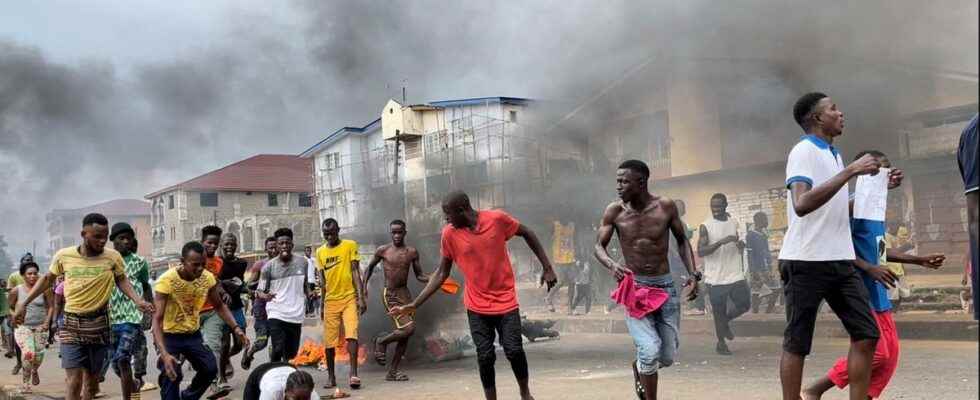The police on Saturday August 13 lifted the curfew in force since Wednesday in the areas of Sierra Leone affected by riots which left at least a dozen dead among the police and the demonstrators. “The security situation has improved considerably throughout the country, and in particular in the places that have been seriously affected (by the demonstrations), thanks to the contributionof the military, Inspector General of Police William Fayia Sellu said in a statement. “The curfew in the affected locations (West Zone, Makeni, Magburaka and Kamakwie) is hereby revoked, with immediate effect“, adds the press release.
A curfew had been announced by the vice-president from 3:00 p.m. to 7:00 a.m. Wednesday, the day of violent clashes between security forces and demonstrators. It then went from 7:00 p.m. to 7:00 a.m. in places affected by the riots. On Friday, in an address to the nation, Sierra Leonean President Julius Maada Bio accused the opposition of wanting to create a “insurrectionto overthrow the government. “On that day, the peace, security and stability of this Nation was shattered by people whose insurrection was premeditated, well planned, financed and executed with shocking brutality.“, did he declare.
The former ruling party targeted by his remarks meanwhile expressed “his concernand called on all parties to “a de-escalation of tensions and to avoid inflammatory speeches and unsubstantiated statements“. At least four members of the security forces were killed in these demonstrations and several police stations were vandalized, according to the police. At least six civilians were also killed, according to a Freetown morgue official. Local media give the figure of seven demonstrators killed.
The initiative for the demonstration came from a group of women traders, “The Grassroots Women of Salone“, who summoned a “peaceful gathering” for “draw attention to economic difficulties“. Despite a soil rich in diamonds, Sierra Leone is one of the least developed countries in the world. The former British colony and its 7.5 million people were still recovering from a brutal 1991-2002 civil war and the 2014-2016 Ebola outbreak in West Africa when they were hit by the Covid-19 pandemic and then by the consequences of the war in Ukraine.
